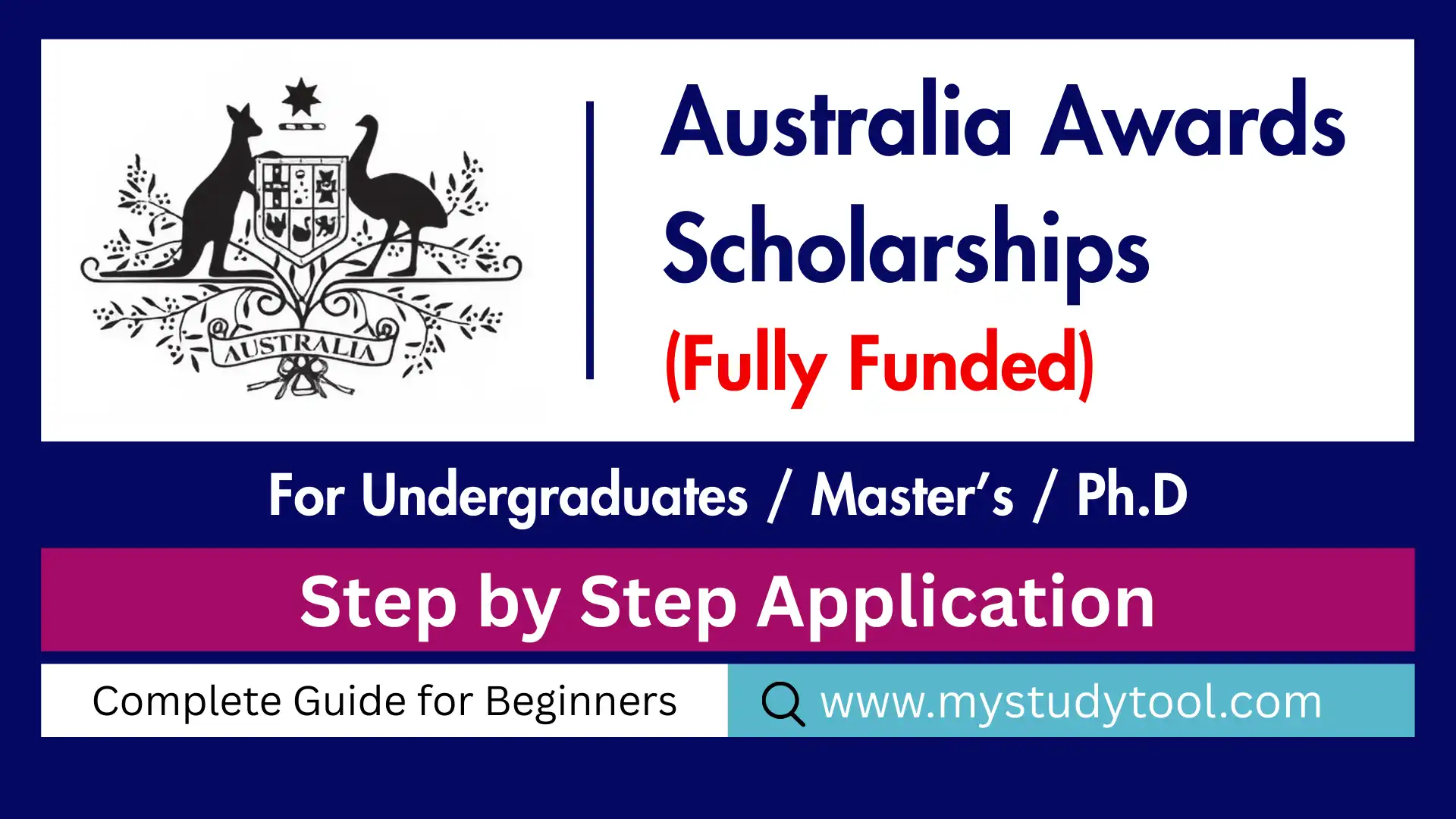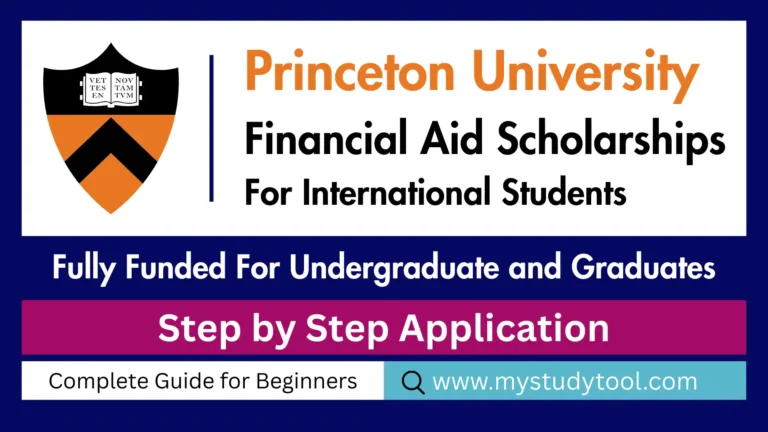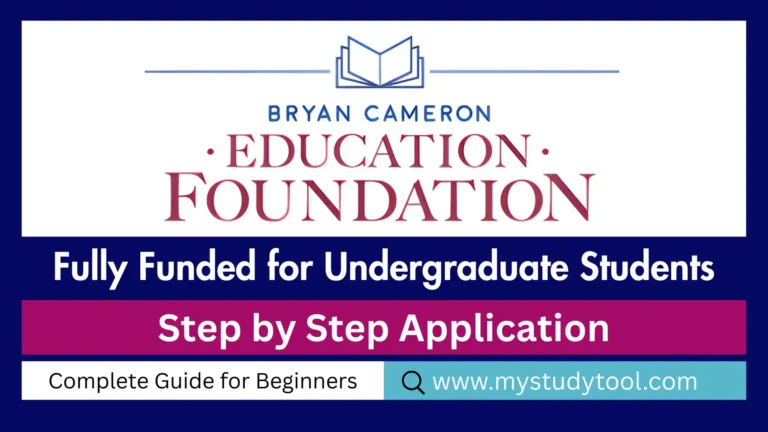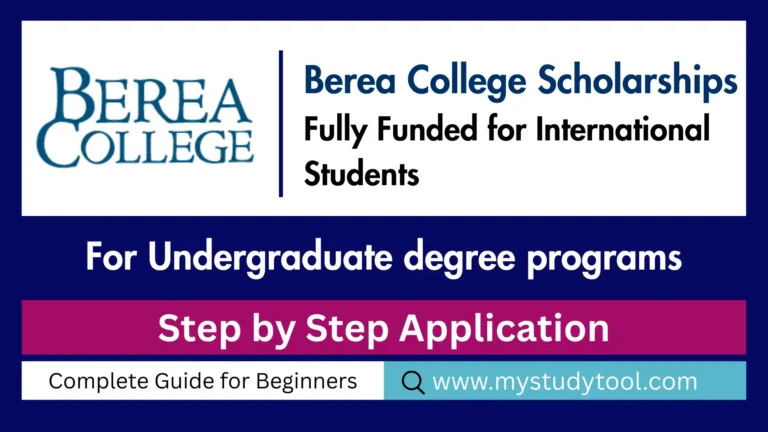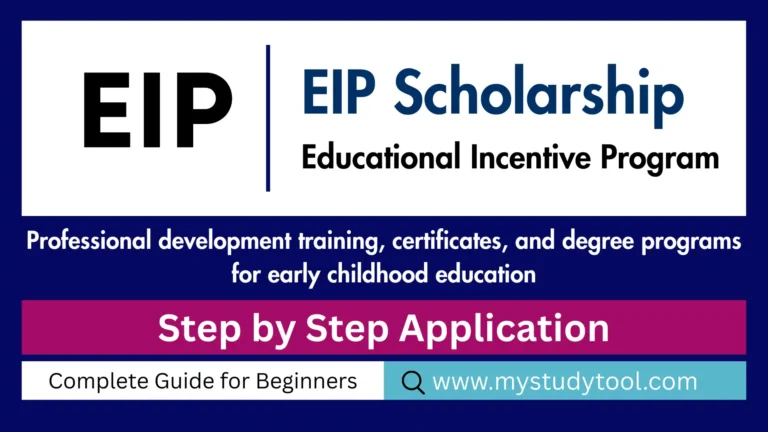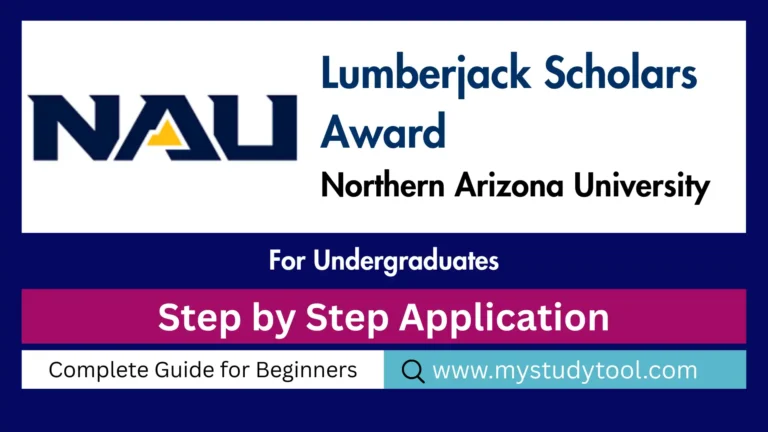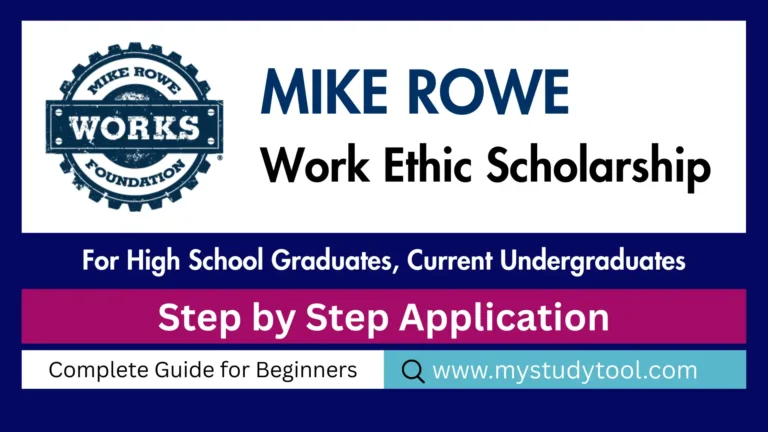Are you considering studying in Australia, but are concerned about the costs? Well, here’s some excellent news – the Australia Awards Scholarships 2026 applications are now available for the next intake, and honestly, this might be your golden ticket to world-class education down under.
I’ve been helping students navigate these waters for years, and let me tell you – Australia Awards Scholarships aren’t just another funding opportunity. They’re life-changing programs that open doors you didn’t even know existed. These long-term awards are administered by the Department of Foreign Affairs and Trade, which means you’re dealing with the real deal here, not some sketchy third-party program.
Based on the latest information from the Department of Foreign Affairs and Trade, the deadline for most countries was April 30, 2025, and courses start in 2026. However, different countries have varying opening and closing dates, so it’s crucial to check your specific country’s timeline. The good news? Understanding Australia Awards Scholarships requirements now gives you a massive advantage for planning future applications.
Also read: Monash University Scholarship 2026 | Fully Funded for International Students
Scholarship Overview
Here’s what you need to know right off the bat about Australia Awards Scholarships:
- Academic Level: Undergraduate, Master’s, and PhD programs across Australian universities and TAFE institutions
- Host Institution: Participating Australian institutions, including the University of Melbourne, the University of Sydney, the Australian National University, and over 40 other recognized institutions
- Target Recipients: International students from developing countries in the Indo-Pacific region, with a specific focus on priority development sectors
- Study Areas: Engineering & Technology, Arts, Business & Law, Medical and Applied Sciences, Nursing and Midwifery, Human Health and Social Sciences
- Program Duration: Varies based on chosen degree (2-4 years for undergraduate, 1-2 years for Master’s, 3-4 years for PhD)
- Annual Value: Approximately AUD $70,000-$100,000 per year, including all benefits
The thing is, these scholarships aren’t just throwing money at random students. They’re strategically designed to build capacity in developing countries by educating future leaders. So if you’re from countries like Nepal, Bangladesh, Pakistan, Indonesia, or various Pacific Island nations, you’re exactly who they want to support.
Also read: Simmons University Kotzen Scholarships 2026 (Fully Funded)
Australia Awards Scholarships Coverage
I’m gonna be honest with you – the coverage is pretty spectacular. Actually, let me rephrase that – it’s comprehensive in ways that’ll make your wallet very happy.
The scholarships cover a range of expenses, including full tuition fees, return air travel, establishment allowances as a contribution towards accommodation expenses, textbooks, and study materials, Overseas Student Health Cover (OSHC), and a contribution to living expenses.
Here’s exactly what you get:
- Full tuition fees – No matter which university or program you choose
- Return airfare – Single return economy class flight via the most direct route
- Contribution to Living Expenses (CLE) – Fortnightly payments at rates determined by DFAT (approximately AUD $34,500 annually)
- Establishment allowance – One-time contribution towards accommodation and settling-in expenses
- Health insurance – Complete Overseas Student Health Cover (OSHC) for award holders only
- Pre-course English (PCE) – English language training is required before academic studies
- Introductory Academic Program (IAP) – Compulsory program covering living and studying in Australia
- Academic support – Supplementary support to ensure academic success
- Research support – Fieldwork allowance for eligible research students
- Study materials allowance – Contribution towards textbooks and academic materials
What I’ve noticed is that many applicants underestimate the value of the non-monetary benefits. The networking opportunities alone are worth their weight in gold – you’ll be connecting with future leaders across the Indo-Pacific region.
Also read: Adelaide Global Academic Excellence Scholarships 2025
Eligibility Criteria for Australia Awards Scholarships
Now, here’s where things get real. The eligibility requirements aren’t just boxes to tick – they’re designed to identify candidates who’ll genuinely benefit from and contribute to the program.
You need to meet these fundamental requirements:
- Citizenship: Must be a citizen of an eligible country (check the country-specific pages for your nation)
- Age requirement: Be at least 18 years old at the time of application
- Academic qualifications: Meet admission requirements for your chosen Australian institution
- English proficiency: Satisfy English language proficiency requirements (usually IELTS 6.5 overall or equivalent)
- Work experience: Minimum 2 years relevant work experience for Master’s programs (varies by country)
- Leadership potential: Demonstrate commitment to contributing to your home country’s development
- Priority sectors: Your proposed study must align with priority development areas for your country
- Visa requirements: Must be able to satisfy all Department of Home Affairs requirements for a Student Visa
- Military service: Current serving military personnel are not eligible
- Previous awards: Cannot have received a long-term Australia Award unless residing outside Australia for twice the scholarship duration
- Marital status: Cannot be married to or in a de facto relationship with Australian/New Zealand citizens or permanent residents
Here’s something people often miss – the work experience requirement isn’t just about having a job. They want to see how you’ve applied your skills, made an impact, and shown leadership potential. So when you’re preparing your application, don’t just list your job duties – tell the story of your contributions and achievements.
Required Documents for Australia Awards Scholarships
Getting your documents together is where many strong candidates stumble. Don’t be that person who submits everything last minute and realizes they’re missing a crucial piece.
You’ll need these essential documents:
- Academic transcripts – Certified copies from all institutions attended
- English test results – IELTS, TOEFL, or PTE scores (must be within 2 years)
- CV/Resume – Comprehensive overview of education, work, and volunteer experience
- Personal statement – 2-page statement outlining your goals and how the scholarship aligns with them
- Reference letters – Usually 2-3 professional references from supervisors or academic staff
- Identity documents – Passport and birth certificate copies
- Medical clearance – Health examination results
- Police clearance – Criminal background check from your home country
Actually, let me give you a pro tip here – start gathering these documents at least 3 months before the application deadline. Some items, especially police clearances and medical exams, can take weeks to process.
Also read: Required Scholarship Documents: 47 Must-Have Documents
How to Apply for Australia Awards Scholarships
The application process might seem overwhelming at first, but it’s actually quite straightforward once you break it down. You’ll need to go to the Online Australia Scholarships Information System (OASIS), where you’ll register online and answer questions to establish your eligibility, then receive a unique registration number, username, and password.
Here’s your step-by-step roadmap:
- Step 1: Visit the official OASIS portal and create your account
- Step 2: Complete the eligibility questionnaire to confirm you can apply
- Step 3: Research and select up to 3-course preferences from eligible institutions
- Step 4: Gather all required documents (see list above)
- Step 5: Complete the online application form with detailed responses
- Step 6: Upload all supporting documents in the specified formats
- Step 7: Submit your application before the deadline
- Step 8: Monitor your email for additional requirements or interview invitations
What I always tell my students is this – don’t just answer the application questions, tell your story. The selection committee reads thousands of applications, so yours needs to stand out by showing your unique journey, challenges you’ve overcome, and the specific impact you plan to make.
Also read: Saudi Arabia Government Scholarships 2026 (Fully Funded)
Application Deadline for Australia Awards Scholarships
The deadline timing is absolutely critical for Australia Awards Scholarships applications. The deadline for most countries was April 30, 2025, at 11:59 PM AEST for the 2026 intake, with courses starting in 2026.
Important deadline note: Each participating country has specific opening and closing dates that may differ from the general timeline. Always check the country-specific deadline page for your nation’s exact dates.
Since applications for the 2026 intake have closed, the next opportunity will be the 2027 intake, which typically opens in February. Use this preparation time to strengthen your academic profile, gain relevant work experience, and perfect your Australia Awards Scholarships application strategy.
Official Website
Ready to start your Australia Awards journey? You’ll find everything you need on the official platforms:
For comprehensive information about the program, eligibility requirements, and country-specific details, visit the Australia Awards Scholarships official website administered by the Department of Foreign Affairs and Trade.
To access the application portal when it opens for the next cycle, head to the Online Australia Scholarships Information System (OASIS), where you can register, check your eligibility, and submit your complete application.
For the most current updates on opening dates and country-specific requirements, check the Australia Awards opening and closing dates page regularly, as these can vary by region and may change based on program updates.
Also, check other scholarships in Australia: Scholarships in Australia
Participating Countries and Regions
Here’s something crucial that many applicants overlook – not every country is eligible for Australia Awards Scholarships. You must be a citizen of one of the participating countries in specific regions.
Eligible regions include:
- Asia-Pacific: Indonesia, Philippines, Vietnam, Cambodia, Laos, Myanmar, Thailand, Mongolia, China, Sri Lanka, Bangladesh, Nepal, Bhutan, Pakistan, Maldives
- Pacific Islands: Fiji, Samoa, Tonga, Vanuatu, Solomon Islands, Papua New Guinea, Kiribati, Tuvalu, Nauru, Cook Islands, Niue, Tokelau
- Africa: Selected countries in sub-Saharan Africa based on bilateral agreements
- Middle East: Specific countries determined by development partnerships
You need to be residing in and applying from your country of citizenship when submitting your Australia Awards Scholarships application. So if you’re a Pakistani citizen living in the UAE, you’d need to apply from Pakistan, not the UAE.
Types of Australia Awards Programs
Actually, let me clarify something that confuses many applicants – Australia Awards isn’t just one program. It’s an umbrella term covering several scholarship types administered by the Department of Foreign Affairs and Trade:
Australia Awards Scholarships (long-term awards):
- Long-term scholarships for undergraduate, Master’s, and PhD studies
- Duration: 1-4 years, depending on the program
- Fully funded with comprehensive support, including living expenses
Australia Awards Short Courses:
- Professional development courses lasting 2-12 weeks
- Focus on specific skills and knowledge areas in priority sectors
- Different application process and timeline from regular Australia Awards Scholarships
Australia Awards Fellowships:
- Short-term professional development opportunities
- For mid-career professionals and senior officials
- Usually a 2-4 months duration
Make sure you’re applying for the right program type based on your career stage and Australia Awards Scholarships eligibility requirements.
Selection Process and Timeline
Here’s what happens after you submit your application – and honestly, this part requires patience:
- Initial screening (May-June): Applications are reviewed for eligibility and completeness
- Academic assessment (June-August): Your academic credentials are evaluated by Australian institutions
- Interview round (August-September): Shortlisted candidates participate in interviews (often virtual)
- Final selection (October-November): Successful candidates are notified
- Pre-departure preparations (December-January): Visa processing, health checks, and orientation programs
- Program commencement (February-March 2026): Studies begin in Australia
The interview stage is crucial – it’s your chance to demonstrate your passion, articulate your goals, and show how you’ll contribute to Australia’s development partnerships with your home country.
Tips for a Competitive Application
After years of seeing applications succeed and fail, here are the factors that actually make a difference:
Tell a compelling story: Don’t just list achievements – connect them to your future goals and your country’s development needs. Show how this scholarship fits into your larger mission.
Be specific about impact: Instead of saying “I want to help my country,” explain exactly what problems you’ll address and how. Numbers and concrete examples work wonders here.
Demonstrate leadership early: Leadership isn’t just about titles. Show how you’ve influenced others, initiated projects, or solved problems in your community or workplace.
Research thoroughly: Know your chosen universities, programs, and professors. Show that you’ve done your homework and have genuine reasons for your choices.
Get strong references: Choose referees who know your work well and can speak to your potential. Brief them about the scholarship and your goals so they can write targeted letters.
Alternative Application Method
While most applicants use the online system, there’s an alternative if you’re having technical difficulties. If you absolutely cannot submit your application through OASIS due to internet connectivity issues or technical problems, you can apply by mail.
Mail application process:
- Contact the relevant program area for your country to obtain hard-copy application forms
- Download referee report templates if applicable to your country
- Ensure all documents are certified and properly formatted
- Submit well before the deadline to account for postal delays
However, I strongly recommend using the online system whenever possible – it’s more reliable, faster, and you get immediate confirmation of submission.
OASIS Application System Guide
The Online Australia Scholarships Information System (OASIS) is your gateway to applying, but it can be tricky if you don’t know the process.
Step-by-step OASIS navigation:
- Visit the OASIS portal and click “Register”
- Answer the initial eligibility questions honestly
- Receive your unique registration number, username, and password
- Don’t submit immediately – save as a draft and update regularly
- Upload documents in the specified formats (usually PDF, max file sizes apply)
- Review everything multiple times before final submission
- Print/save confirmation receipt for your records
Pro tip: OASIS gets extremely slow during peak periods (especially the week before deadlines). I’ve seen students lose hours of work due to system timeouts. Apply at least 2-3 days before the deadline and work during off-peak hours if possible.
After Application Submission
Once you hit that submit button, here’s what happens behind the scenes and what you should do:
Immediate steps after submission:
- Save your confirmation receipt and registration number
- Set up email filters so scholarship communications don’t go to spam
- Continue your regular work/studies – the process takes months
- Don’t contact the program office unless specifically requested
What’s happening during the review:
- Initial screening for completeness and eligibility (May-June)
- Academic assessment by Australian institutions (June-August)
- Interview scheduling for shortlisted candidates (August-September)
- Final selection and notification (October-November)
The waiting period is honestly the hardest part. Many strong candidates get anxious and start second-guessing their applications. My advice? Use this time productively by exploring housing options in Australia, researching your field, and preparing for potential interviews.

